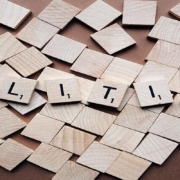Bosnia Herzegovina, Bosniaks and the European Union
Relations between, and indeed within, Bosnia Herzegovina’s three constituent nations (Bosniaks, Croats and Serbs) have been strained in the entire post-1992-1995 war period. The political climate in the country less than eight months from the general election on October 2 is arguably as challenging as it has ever been. While the inability to agree electoral law reforms has gained the most attention recently and highlights the differences of opinion between Bosniaks and Croats in Bosnia Herzegovina, the fundamental issue is how the Bosniak body politic sees the future trajectory of Bosnia Herzegovina.
The fundamentals
The challenge for Bosnia Herzegovina (BiH) is that there are few factors working to hold the country together. It is not a nation state; rather it has a unique institutional setup, which was codified in the peace settlement in Dayton, Ohio in 1995, and is anchored in the concept of three constituent nations (Bosniaks, Croats and Serbs) and two entities, the Federation of Bosnia Herzegovina and Republika Srpska (RS).
Republika Srpska (the Bosnian Serb entity) covers 49% of the territory of the country and contains approximately one third of the population while the Federation of Bosnia Herzegovina (the entity containing Bosniaks and Croats) covers 51% of the country but has two thirds of the population. A look at the map of BiH might suggest parity between the two entities. Yet, sparsely populated RS is far smaller in terms of economic heft. Approximately 3% of the citizens of BiH are minorities, in the sense that they do not identify as belonging to one of the three constituent nations.
Map of Bosnia Herzegovina

Source: Nikola Štambak
Unlike Yugoslavia, which could use the threat of external enemies as a glue to hold the country together, BiH’s situation today is essentially diametrically opposite. Not for nothing does the local quip go that BiH is a unique country – when its national football team loses a World Cup qualifying game, half the country rejoices.
BiH’s Serbs have little to reason to change tack
Serbs were rewarded for their wartime exploits with their own political entity in BiH, RS. Since its inception, the Governments of Serbia and RS hold regular meetings and Banja Luka coordinates its actions with Belgrade. With 49% of BiH’s territory under their control, Serbs are unlikely to compromise on their stance and willingly do more than the minimum within the confines of BiH to protect what they have. In their ideal scenario, they would attach RS onto Serbia proper.
The strategic issue for Serbs is that the large area under their control in the west of BiH is not linked to Serbia which neighbours BiH to the east. For this reason, secession based on the current territory of RS is not straightforward. Even during the Bosnian War, they could not secure a corridor wider than a few kilometres in the Posavina region of northern Bosnia bordering Croatia and today the Brčko District (which is “entity neutral” and belongs to neither RS nor the Federation) dissects the RS entity between its eastern and western spheres on the territory of BiH.
Even assuming for the sake of argument an orderly, velvet parting of the ways in BiH such as happened in Czechoslovakia in 1991, it is highly questionable whether Serbia has the means to expand its territory – namely to finance the infrastructure and other investments necessary to make any part of BiH a functional part of Serbia.
Bosnian Serbs are aware of these constraints and seek to maintain the current dysfunctional state in BiH for as long as possible. Every improvement in prospects for BiH is a step back from the goal of potential unification with Serbia. This is the genesis of Bosnian Serbs’ politics in respect of BiH.
BiH’s future rest on the choices of Bosniaks
The starting point for any advancement in Bosnia’s current situation is a functional Federation of BiH, the larger of the two entities in BiH, in which the vast majority of the Bosniak and Croat constituent nations live. For Bosniaks, having the Croats onside buttresses the strengthen and value of the Federation in defending BiH’s unity. A dysfunctional Federation is a political gift to Bosnian Serbs. It makes their task of arguing RS must be allowed to secede as BiH is not a viable country much easier.
That brings us to BiH’s most numerous, important and influential constituent nation, the Bosniaks. Their decisions will be crucial in determining whether BiH moves on from its current impasse and actually gains an Avis to finally be able to submit an application to become a formal candidate for European Union membership.
Accounting for two thirds of economic activity and over two thirds of the country’s population, the Federation has the heft to meaningfully influence the country’s development and incentivise Serbs to take part more constructively in BiH’s development. But that requires action in the Federation in line with EU standards.
Croatia is already in NATO and the EU and most Croats in BiH live near the border with Croatia
The only constituent nation which is unequivocally pro-European Union in BiH is the Croats who are culturally and politically closely linked to Croatia. Not only has Croatia been a member of NATO since 2009 and the EU since 2013, but the country is preparing to adopt the euro in 2023, will potentially enter the Schengen free movement area soon too and is making a serious effort to qualify for OECD membership.
Post-Dayton, across the political spectrum, Croatian presidents and prime ministers have always stressed the singular importance of the territorial integrity of BiH. It is also why Croatia strongly supports the country’s efforts to join NATO and the EU and has since Dayton pushed Croats towards integration in the Federation of BiH. A third (Croat) entity has been an anathema in politics in the Republic of Croatia particularly given its wartime echoes and the negative image of Croatia that it engendered. In addition, and perhaps more importantly, as a member of NATO[1] Croatia cannot change its borders without the approval of each other NATO member state.
Although the breakup of BiH is a risk, Croatia will not be a catalyst for this scenario. NATO membership aside, this scenario necessarily means the formalisation of a Greater Serbia, which is fundamentally against Croatia’s strategic interests.
With the institutional experience of Croatia entering the EU in their favour, Croatian political parties in BiH (especially given their links to parties in Croatia itself) have a template ready to meet EU accession conditions.
Are Bosniaks in favour of joining the EU?
The electoral and constitution reform issues stem from the 2009 European Court of Human Rights ruling (Sejdić and Finci) that the current constitution restricts the access of others (i.e. non-constituent nation citizens) to political representation. Subsequent Constitutional Court of BiH rulings[2] required amendments to electoral processes too.
Politicians in BiH have not implemented these decisions. As the International Crisis Group noted all the way back in 2012 commenting the 2009 ECHR decision “[i]mplementing the judgement will not necessarily improve the situation of minorities, whose marginalisation is due more to political culture than to the impugned constitutional provisions.”[3] Namely, minorities nominally benefit from guaranteed seats in many elected bodies. As there are relatively few minorities, a minimal number of votes is enough to win these seats. The problem is that established constituent nation parties field their own minority candidates and can then easily win these seats with relatively few voters from their own constituent nation (crossover votes).
This issue of crossover voters has been a bone of contention in the Federation for over 15 years, since 2006 with the election of the nominal Croat member of the country’s tripartite presidency by majority Bosniak votes. The current political crisis is not the first brought about by this issue. It highlights the extent of the lack of political will in the country to resolve open issues.
A lack of political will
As Bosniak politicians advocate a civic constitution to replace the current constituent nation arrangement, it is incumbent upon them to convince both Croats and Serbs they should accept this proposal. Giving up constituent nation status would be a massive concession which would require extensive compromises from Bosniaks. Especially given the lack of trust between the three constituent nations (and indeed within them).
Yet, if the BiH political elite cannot implement the rulings of their own institutions, how can they be expected to agree to the entry conditions for NATO and EU membership which entail far more compromises than those which they have not been able to make at home in the past two decades?
As the largest constituent nation, Bosniaks have most to gain from a functional BiH. Their rejection of Croat initiatives for the reform of electoral laws has acted as one catalyst for RS to begin the process of withdrawing from national-level institutions. Indeed, RS is milking this opportunity for all it can by now making electoral reform a condition to return to national-level institutions.
An agreement between Bosniaks and Croats would breathe new life into the Federation and by extension into BiH. This would also call the Serbs’ bluff in respect of seeking to secede. The reality of a functional Federation would necessarily force them to be constructive at national level, drawing them away from separatism. As things stand, the Federation remains dysfunctional and BiH Croats more frequently seek an ally for their political goals in Bosnian Serbs. Both outcomes are far from optimal for Bosniaks.
For Bosniaks this is 1878 all over again, to an extent
For Bosniaks, today’s choices are similar to what they faced with the arrival of Austrian rule in 1878 and the country’s first meaningful contact with Western influence. That event meant Bosniaks lost political power and privileges they held for centuries before that during the Ottoman Empire. In Yugoslavia, Bosniaks found themselves pressured between Croats and Serbs. In reality, nothing changed – Bosniaks did not regain political power and the process of westernisation progressed slowly.
By 1914, at least in Sarajevo, sentiment towards Austria was relatively positive. While today seeking rapport with and the support of Turkey is a legitimate Bosniak policy, it does pull them away from the EU. An irony given, like their fellow BiH citizens, the vast majority of Bosniaks emigrate to the West, when they decide they have had enough of BiH.
BiH can only access the EU through Croatia – Montenegro and Serbia, not in the EU, nor likely to join soon, are not options in this respect. Indeed, BiH’s only port facility, in Ploče, is in Croatia. Whenever accession talks to begin, Sarajevo would seek translations of accession documents from Zagreb, like Serbia and Montenegro did.
If the goal is to join the EU, it makes very little sense for Bosniaks not to foster relations with BiH Croats and Croatia which is, after all, well integrated into the EU.
Much is at stake in Bosnia Herzegovina
Bosniaks, as the most numerous of the constituent nations, will always play the primary role in the functioning of the country. The divergent paths of Croatia and Serbia over the past 30 years offer a guide to how, depending on their choices, the chances of achieving a stable and functional BiH can rise and fall. Over 1 million citizens of the country have already sent a strong message to politicians by exercising their right to a Croatian passport. An EU passport, which is the ultimate insurance policy should their politicians not step up to the plate.
[1] See page 45 of this report
[2] See paragraph 47, for example
[3] See page 1 in the hyperlink above








